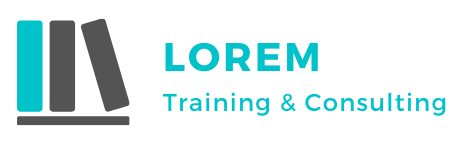Problem Solving and Critical Thinking
"The measure of success is not whether you have a tough problem to deal with, but whether it is the same problem you had last year." - John Foster Dulles
Welcome to our Problem Solving and Critical Thinking Training Programs, tailored to equip professionals with the cognitive strategies and tools required to effectively tackle challenges and make informed decisions.
In today's complex and rapidly changing business environment, the ability to analyze situations, think critically, and execute solutions is invaluable.
Our programs are designed to refine these essential skills, enhancing your ability to navigate and resolve diverse scenarios proficiently.
These training modules are foundational for any professional path and scalable to include more specialized topics as needed, ensuring they remain relevant and beneficial regardless of how your learning needs evolve.
The Importance of Problem Solving and Critical Thinking
Problem-solving and critical thinking are cornerstones of high-performing professionals and organizations. They are critical because:
- Innovation Trigger: Effective problem solving stimulates innovation by challenging standard practices and promoting new ideas.
- Risk Management: Critical thinking helps identify potential risks and devise preventative strategies, saving resources and averting crises.
- Enhanced Decision Making: These skills are essential for making quick, effective decisions that can significantly impact organizational success.
- Adaptability and Resilience: Professionals skilled in these areas can adapt to unforeseen challenges and rebound from setbacks stronger than before.
Benefits of Problem Solving and Critical Thinking Training Programs
Our training programs on Problem Solving and Critical Thinking offer numerous advantages to participants, preparing them to contribute constructively to their roles and broader organizational goals:
- Structured Problem-Solving Techniques: Learn to apply structured approaches to problem-solving that break down complex processes into manageable parts.
- Enhanced Analytical Abilities: Develop the ability to critically analyze issues, consider multiple viewpoints, and draw insightful conclusions.
- Effective Decision-Making Skills: Gain tools to improve decision-making processes, enhancing both the speed and quality of your decisions.
- Increased Creativity: Encourage innovative thinking and creativity, which are crucial for problem-solving and competitive advantage.
- Resilient Mindset Development: Build resilience by mastering the art of strategic thinking and effective problem resolution.
Currently, the curriculum includes comprehensive modules on problem solving and decision making, and critical thinking—each designed to build on the last.
Join our Problem Solving and Critical Thinking Training Programs to sharpen your analytical skills, boost your decision-making confidence, and enhance your professional versatility.
Whether you're addressing daily challenges or strategic issues, these skills are pivotal in driving personal and organizational success.
PROBLEM SOLVING AND DECISION MAKING

What It Is:
Problem Solving and Decision Making Training is a meticulously structured program designed to enhance the abilities of professionals to effectively identify, analyze, and resolve problems and to make informed, strategic decisions.
This comprehensive program encompasses various systematic approaches to problem-solving, including defining problems, generating alternatives, analyzing and selecting alternatives, and implementing solutions.
It utilizes a blend of theoretical knowledge and practical application, ensuring participants are well-equipped to handle real-world challenges efficiently.
Importance:
In the fast-paced and complex environments typical of modern businesses, the ability to quickly and effectively resolve issues and make sound, well-informed decisions is crucial.
These skills are critical across all levels of an organization and are particularly valuable in leadership roles.
Effective problem-solving and decision-making can significantly enhance the efficiency and productivity of an organization, leading to better resource management, improved customer satisfaction, and ultimately, greater profitability.
Benefits:
- Enhanced Analytical Skills: Sharpens participants' ability to dissect complex situations and problems, enhancing precision in problem identification and analysis.
- Improved Decision Quality: Cultivates the ability to make strategic and tactical decisions that positively impact organizational performance.
- Increased Efficiency: Equips professionals with the tools to streamline processes, reducing time and cost associated with resolving issues.
- Greater Innovation: Encourages creative and out-of-the-box thinking, fostering an environment ripe for innovation and progressive change.
- Enhanced Team Collaboration: Promotes a collaborative approach to problem-solving, which improves team dynamics and the quality of team output.
Program Details:
The training program begins with the fundamentals of problem identification—teaching participants how to accurately recognize and define problems using various analytical tools like the 5 Whys and Fishbone Diagrams. This stage is crucial for setting the direction for further analysis and resolution strategies.
Participants then engage in generating solutions using techniques such as brainstorming, mind mapping, and the nominal group technique.
These activities encourage creative thinking and often lead to innovative solutions that may not emerge through individual work.
Following solution generation, the program delves into decision-making processes.
Participants learn to apply decision-making models such as the Decision Matrix, Cost-Benefit Analysis, and Risk Assessment to evaluate solutions.
These models help in visualizing potential outcomes and structuring the decision-making process to enhance objectivity and effectiveness.
A significant focus is also placed on the implementation phase, where participants are taught how to plan, execute, and monitor the effectiveness of chosen solutions. This includes setting realistic timelines, allocating resources efficiently, and defining success metrics to evaluate outcomes.
Throughout the program, participants are involved in hands-on projects and case studies that simulate real-world problems. This practical application helps solidify understanding and allows participants to practice their new skills in a controlled, supportive environment.
Who Can Benefit:
- Project Managers and Team Leaders: Who regularly encounter complex projects that require nuanced problem-solving and strategic decision-making.
- Executives and Managers: At all levels who need to enhance their strategic thinking capabilities to drive business success.
- Technical Professionals: Such as engineers or IT professionals, who often face technical challenges that require innovative solutions.
- Entrepreneurs: Who must swiftly address challenges and make decisions that could impact the viability of their business.
Problem Solving and Decision Making Training is essential for professionals aiming to enhance their strategic thinking capabilities and improve their effectiveness in leadership roles.
By equipping participants with advanced problem-solving techniques and decision-making strategies, the program prepares them to handle unexpected challenges confidently and to contribute positively to their organization’s strategic objectives.
This training not only fosters individual career growth but also propels organizational success.
CRITICAL THINKING

What It Is:
Critical Thinking Training is an advanced educational course aimed at developing participants' analytical thinking skills.
This training enhances individuals' ability to assess information and arguments critically, make reasoned judgments, and approach problems systematically.
The program explores various dimensions of critical thinking, including logic, argument analysis, reasoning, and the evaluation of evidence.
Importance:
Critical thinking is essential in any professional setting as it underpins effective problem solving and decision making.
This skill set is particularly crucial in environments where individuals must navigate complex information and make decisions under pressure.
Training in critical thinking leads to better solutions, innovations, and strategies, which are vital for business success and career advancement.
Benefits:
- Enhanced Problem-Solving Skills: Provides professionals with the capability to approach problems logically and to find well-thought-out solutions.
- Improved Decision Making: Fosters the ability to scrutinize information and predict the implications of decisions, leading to more successful outcomes.
- Increased Objectivity: Empowers individuals to identify their biases and approach situations with a balanced perspective.
- Better Communication: Enhances the ability to argue persuasively and concisely, improving advocacy and negotiation skills.
- Greater Adaptability and Innovation: Encourages a questioning mindset, which is crucial for innovation and adapting to new situations or challenges.
Program Details:
The training begins with an introduction to the basics of critical thinking, including its definition and importance.
Participants are then taken through various critical thinking processes such as identifying biases, distinguishing between facts and opinions, evaluating sources of information, and logical reasoning.
Participants engage in activities that involve analyzing arguments, identifying logical fallacies, and constructing cogent, coherent arguments themselves.
They also practice these skills in group discussions, debates, and written exercises, which help develop their ability to express their thoughts clearly and effectively.
Advanced modules may cover statistical reasoning, scientific literacy, and technological reasoning, especially for professionals in technical fields like engineering, science, and IT.
These modules are tailored to help participants apply critical thinking skills in their specific professional contexts.
Who Can Benefit:
- All Professionals: Especially those in leadership or managerial positions, who require advanced analytical skills to guide decision-making and policy formulation.
- Educators and Trainers: Who need to develop critical thinking skills to enhance their teaching effectiveness and to foster these skills among their students.
- Healthcare Professionals: Including doctors and nurses, who must evaluate information under pressure and make quick, accurate decisions.
- Legal Professionals: Whose careers depend on constructing and analyzing arguments meticulously.
Conclusion:
Critical Thinking Training is indispensable for professionals across all fields.
It nurtures a systematic approach to reasoning that significantly enhances analytical skills, supports complex decision-making processes, and fosters a constructive questioning attitude.
This training not only prepares individuals to perform better in their current roles but also equips them with the intellectual tools necessary for strategic thinking and leadership, which are invaluable in navigating the complexities of modern business environments.
These programs, by fostering a robust set of cognitive abilities, prepare participants to face and navigate the myriad challenges that characterize today's professional landscapes, thereby enhancing both their personal effectiveness and the operational efficiency of their organizations.
View all available Corporate Training Programs

